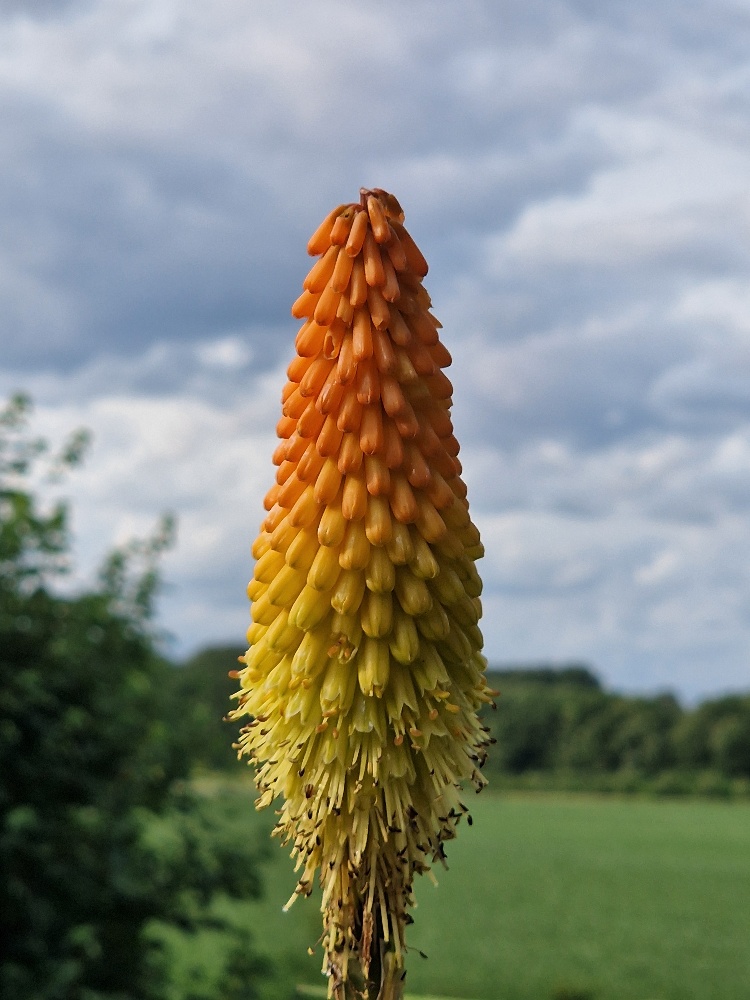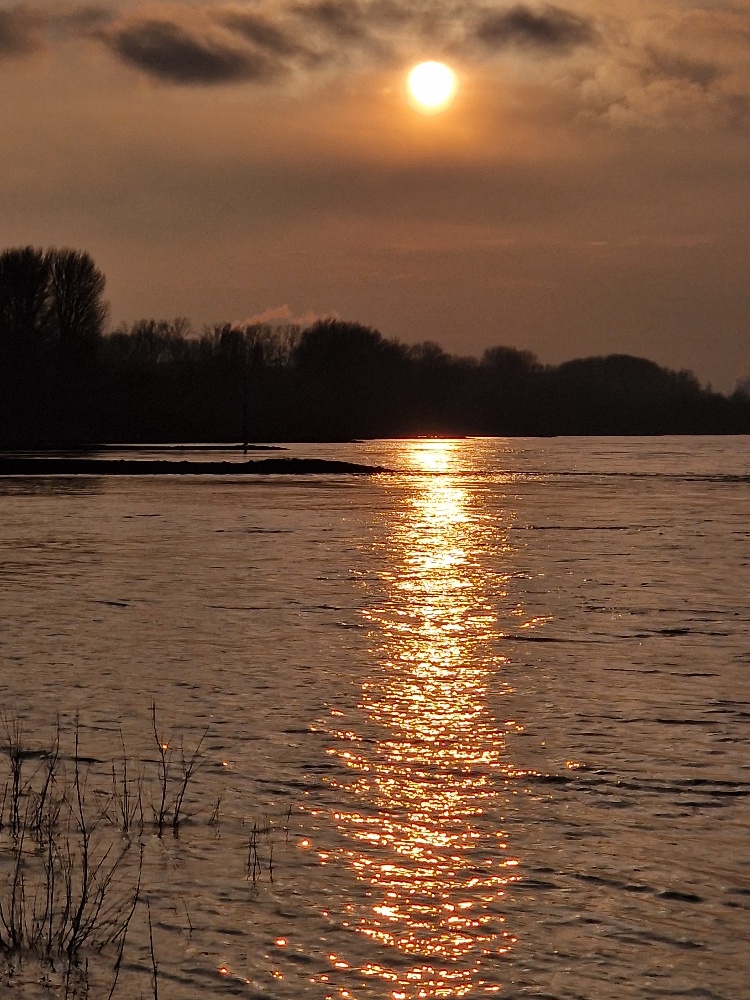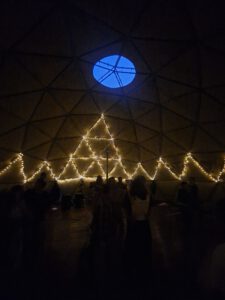Nor do they light a lamp and then put it under a bushel basket; it is set on a lampstand, where it gives light to all in the house. Just so, your light must shine before others, that they may see your good deeds and glorify your heavenly Father.
Matthew 5: 15-16
Our deepest fear is not that we are inadequate. Our deepest fear is that we are powerful beyond measure. It is our light, not our darkness that most frightens us. We ask ourselves, ‚Who am I to be brilliant, gorgeous, talented, fabulous?‘ Actually, who are you not to be?
You are a child of God. Your playing small does not serve the world. There is nothing enlightened about shrinking so that other people won’t feel insecure around you. We are all meant to shine, as children do. We were born to make manifest the glory of God that is within us. It’s not just in some of us; it’s in everyone. And as we let our own light shine, we unconsciously give other people permission to do the same. As we are liberated from our own fear, our presence automatically liberates others.
Marianne Williamson, A Return to Love, Reflections on the Principles of `A Course in Miracles´
This beautiful reflection by Marianne Williamson has given courage to many of us in times of distress. It came to mind recently while going through a challenging situation. It has caused me to pause and reflect on our inner light and how, in many cases, it gets suppressed, how we can remember it, and utilise it to fuel our feelings, actions, and words, as we go through our daily lives.
Like Marianne, I believe that we arrive here as light incarnate, though there is also some speculation as to legacy burdens we may carry over from previous incarnations or we may pick up from the multi-generational energy field of our family of origin. These legacy burdens may comprise the first layer of haze, dampening out inner light.
When we look into the eyes of any newborn, it is like having direct contact with The Source. As a greeting ritual, wouldn’t we be better served by requesting the blessing of the newborn than by imagining that we have some form of blessing to confer upon him or her?
What, then, happens to our inherent brilliance, gorgeousness, talent, fabulousness, playfulness, and so on?
I remember this quality in my own children when, having just emerged from toddlerhood, for example, they would stand on the third or fourth step of the stairs and wait for me to walk by in the hallway below. Without any prior warning the little child, with great excitement would loudly squeal `Pappi fangen´ (catch me, Daddy!) and jump into the air even before I had turned around to face and then catch them. We played this game with great joy and enthusiasm. It is good to be reminded that this deep level of spontaneity and trust resides deep down inside each and every one of us.
What happens to us, such that this seemingly gets lost? How do we manage to lose sight of the truth of out own nature as we progress through childhood? The answers lie in a dynamic that has been active over generations, in some cases many generations.
It is a matter of disconnectedness, the inability of the adult caregivers to connect with the child at the deepest level. Deep connectedness is the lifeline of every child, and it is first sought and found, or not, with our adult caregivers.
Any absence or lack of connectedness has more to do with the adult parents and caregivers than with the child herself. It is precisely because the caregivers are not emotionally and spiritually equipped to provide what the child needs, especially in the sense of being seen, and provided sufficient affection and safety to continue being her True Self, that she begins to experiment with ways of `earning´ or effectuating exactly that.
This requires putting on some sort of show. This show marks the departure from simply being our True Self. We begin to develop a False Self to have our needs met. Rather than viewing this as a maladaptation, we can recognise in this the innate intelligence of evolution. Coping strategies secure our survival, after all.
The price tag is, however, high. An inner disconnection begins to evolve in the child. We become estranged from who we really are.
The adults in question lack the ability to be attuned with the child, – they have lost contact with their own original sense of spontaneity. Suppressed or denied, it lies beyond their grasp. This is perhaps the true meaning of the `Fall from Grace´ of the `Banishment from the Garden of Eden´?
Attunement means the ability to tune into the wavelength of the child, emotionally, physically, spiritually. If the parents are themselves so stressed that they are caught up in the role of the False Self, lacking in inner attunement, their dials will not be able to clearly pick up the signals of the children to a degree which enables an appropriate response. This misalignment causes alienation and will nurture mistrust and self doubt on the part of the child, thereby further fuelling the negative inter-generational maelstrom.
When the child stumbles and falls, for example, and Granny rushes in with her own projected fears of `Oh that didn’t hurt at all,´ the child will be faced with an emotional quandary, caught in the ambivalence between trusting her own experience (it does hurt) and loyalty to the caregiver on whom she depends. In some cases, especially if this is a regular pattern, the child will begin to doubt and eventually deny her own experience, trusting instead the (fear-based) perception of the adult.
We begin to move our sense of Self onto unstable ground, onto the fear-based perceptions of the un-attuned adult. The more we do this, the more likely our sense of True Self is to wobble, thus nurturing the growth of the False Self. A self-perpetuating dynamic begins, which will take us further and further away from who we truly are, resulting in a disconnection from self.
It is our utter dependence on the adults around us, as young children, that creates this almost blind sense of loyalty towards them. They must be right, we believe. The only other option is the recognition that they are not up to the task of providing good enough parenting, an idea so threatening that we will grasp any other straw rather than entertain this possibility.
So, we deny the reality of that childhood situation, both in the situation and long afterwards. We maintain this pattern until the pain of denial exceeds the pain from which we are initially trying to protect ourselves. Again and again, we continue to make problems for ourselves in later life by remaining unconscious of our childhood pain. We don’t know what we don’t know, and we don’t know that we don’t know.
In our relationships as adults later in life, it is those emotions – in my case feelings associated with abandonment, anxiety, disconnectedness, dread, and grief, – that for very human and understandable reasons we want not to feel, whatever the cost.
Therefore, we deny, discount, rationalise, or project them, thus creating confusion, both intrapersonal and interpersonal, because those inner scars of the childhood wounds have always been there, tarrying just below the surface of our lives, waiting to be triggered. We are like a walking minefield in a tumultuous, crowded marketplace.
As if directed by an inner force trained on bringing about the blossoming of our full potential, mines are detonated, right in the middle of our current relationships many years later. This is the signpost that says: Pay attention! Pay attention to old stuff, those old wounds, which in our family of origin were hidden, rewritten, or denied, sending the pain deep underground, beyond the reach of our regular conscious recall!
For many of us, the families in which we were raised were characterised by the motto: `don’t talk, don’t feel, don’t trust´. Feelings of childhood woundedness don’t surface until much later when we believe we have grown up. Physically we have grown older: emotionally, to a degree, we are still toddlers.
Those very feelings of closeness, dependence, and vulnerability that characterise every intimate relationship (partnering or parenting), trigger old unresolved unconscious memories, but the pain that is being triggered was so well suppressed in childhood that we don’t know that that is what is happening.
We think our intense emotional reaction is about who or what triggered it currently and we are not able to trace it back to the deeper hurt of our childhood experience that is driving our disproportionate, impulsive reaction. As long as we see the exclusive cause of our troubles `out there´ we will never get to the resolution of our issues and our wounds continue to fester under the surface.
Of course, we need to learn to take care of ourselves in terms of setting boundaries. Recovery is, therefore, always a combination of inner work, resolving inner polarities, and learning to speak up for ourselves, and by setting healthy outer boundaries.
Intimacy can be broken down into the syllables: `In to me see´. Intimacy with others presupposes intimacy with self, which means the inner haze and fog must first be burnt off. As long as I am still trapped in the `don’t talk, don’t feel, don’t trust´ energy field of my family of origin, that intimacy with self will be difficult to achieve, if not impossible, as my vision is still clouded by protective layers of denial, delusion, projection, and suppression. My own light is hidden, even from me, under a bushel basket.
Only when a degree of clarity has been achieved, can we begin to recognise our reality. This healing work of achieving clarity can best be achieved in community. In the safety of a healing tribe, we can work together to heal the wounds of childhood which have been patiently awaiting our focussed attention.
In the context of this healing, my understanding of the words of Christ quoted above: that they may see your good deeds translate to: That they may experience you as authentic in your thoughts, words, and actions, and glorify your heavenly Father meaning: That you may unfold the full potential of your essence of love in the course of this incarnation.
The statement also calls us to carry our light into the world such that others may be encouraged to discover their own. The bright torch can then be passed lovingly from one generation to the next.






